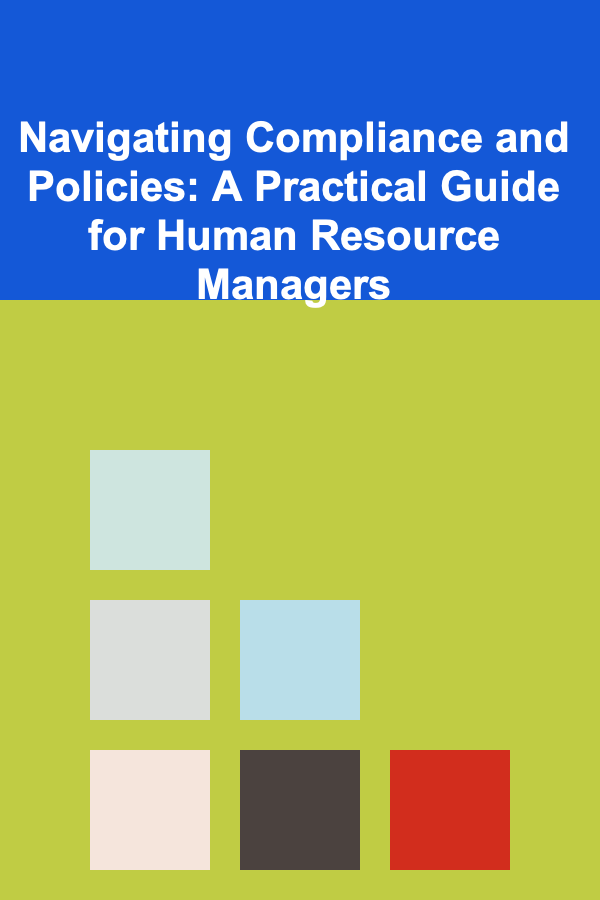
The Power of Mindfulness: How to Stand Out by Being Present and Aware
ebook include PDF & Audio bundle (Micro Guide)
$12.99$9.99
Limited Time Offer! Order within the next:

In a world that is always on the go, where the demands of work, personal life, and technology constantly compete for our attention, the concept of mindfulness has become more important than ever. Mindfulness, at its core, is the practice of being fully present in the moment, aware of your thoughts, emotions, and surroundings, without judgment. But its power goes beyond just improving mental well-being; it can profoundly impact your ability to stand out, thrive, and succeed in both personal and professional realms.
This actionable guide explores how embracing mindfulness can not only improve your overall health and well-being but also elevate your performance, relationships, and reputation. By becoming more present and aware, you can unlock your potential, overcome distractions, and stand out in an increasingly distracted world.
Understanding Mindfulness and Its Impact
Mindfulness isn't just about meditation or breathing exercises; it's a way of life that involves living in the present moment, acknowledging what's happening within and around you, and cultivating awareness without judgment. By consciously choosing to live in the present, you create a sense of clarity that allows you to make better decisions, improve relationships, and enhance productivity.
1.1 The Science Behind Mindfulness
Research has shown that mindfulness can have a wide range of psychological, emotional, and physiological benefits. Here are a few key findings:
- Reduces Stress: Studies have shown that mindfulness meditation can lower cortisol levels (the stress hormone) and activate the parasympathetic nervous system, which helps the body relax.
- Improves Focus: Practicing mindfulness can increase your ability to sustain attention and concentrate on tasks. This leads to better productivity and fewer distractions.
- Enhances Emotional Regulation: Mindfulness helps you become more aware of your emotions, allowing you to respond rather than react impulsively. This results in more measured, thoughtful decisions.
- Boosts Mental Resilience: Mindfulness helps you to build psychological resilience by allowing you to acknowledge difficult emotions and thoughts without being overwhelmed by them.
1.2 Mindfulness and Its Role in Personal Growth
Mindfulness is a tool for personal growth because it enables you to step back from your automatic reactions and patterns of behavior. When you practice mindfulness, you begin to notice the stories you tell yourself, the judgments you make, and the mental habits that limit your potential. This self-awareness creates an opportunity for change and growth, as you become more conscious of how you engage with the world and others.
Mindfulness and Standing Out in a Distracted World
In an age where distractions are abundant---whether it's constant notifications, meetings, or the pressure to perform---mindfulness allows you to stand out by honing your attention and focusing on what truly matters. When you're present and engaged, you exude a sense of calm confidence and authenticity that others notice and respect. Here's how mindfulness can help you make a lasting impression in both your personal and professional life.
2.1 Being Fully Present in Conversations
One of the simplest but most powerful ways to stand out is through your interactions with others. Being fully present in conversations---listening attentively and engaging thoughtfully---can set you apart from the crowd. In a world where people are often distracted by their phones or preoccupied with their thoughts, giving someone your undivided attention can create deeper, more meaningful connections.
- Practice Active Listening: Mindfulness allows you to listen with greater depth. Instead of thinking about your response while the other person is speaking, you listen without judgment, absorbing the full meaning of their words.
- Non-Verbal Cues: Being mindful also involves paying attention to non-verbal communication. Your body language, eye contact, and tone of voice convey just as much as your words. Mindfully engaging with these cues can strengthen your relationships.
- Empathy and Understanding: Mindfulness enhances your ability to empathize with others. By being attuned to their feelings, you can respond in ways that show genuine care and respect, deepening your connections and enhancing trust.
2.2 Staying Focused and Productive in Your Work
In the workplace, distractions can severely hinder your productivity and performance. By practicing mindfulness, you can significantly increase your focus and output.
- Eliminate Multitasking: Multitasking may seem efficient, but it divides your attention and reduces the quality of your work. Mindfulness encourages single-tasking---fully focusing on one task at a time, which results in higher quality and efficiency.
- Managing Stress and Pressure: Mindfulness helps you remain calm under pressure. Instead of reacting impulsively to stressful situations, you learn to pause, assess the situation, and respond thoughtfully.
- Improved Problem-Solving: Being present allows you to approach challenges with a clearer mind, which leads to better problem-solving. Mindful individuals are less likely to make snap decisions, relying instead on thoughtful reflection to identify optimal solutions.
2.3 Cultivating Emotional Intelligence
Mindfulness plays a crucial role in enhancing emotional intelligence (EQ), which is one of the most important qualities for personal and professional success. High EQ allows you to navigate social situations with ease, manage conflict, and collaborate effectively.
- Self-Awareness: Mindfulness helps you understand your emotional triggers, allowing you to manage your reactions and make thoughtful choices.
- Self-Regulation: By becoming more aware of your emotions, you can prevent impulsive or reactive behaviors. Instead of letting frustration or anger take over, mindfulness helps you to maintain composure.
- Social Awareness: Mindful individuals are better attuned to the emotions of others, making it easier to connect, collaborate, and build rapport. You're more likely to recognize when others are upset, stressed, or disengaged, and can adjust your approach accordingly.
- Relationship Management: Mindfulness supports healthy communication, conflict resolution, and cooperation, which are all essential for maintaining strong relationships in the workplace and beyond.
2.4 Standing Out as a Leader
Mindfulness is a powerful tool for leadership. Effective leaders are not only strategic thinkers but also emotionally intelligent, empathetic, and capable of inspiring others. Practicing mindfulness can help you develop these qualities and become a more impactful leader.
- Enhanced Decision-Making: Mindful leaders are able to make more thoughtful and deliberate decisions because they have a clearer understanding of their priorities and values.
- Resilience and Adaptability: The challenges leaders face often involve managing uncertainty and change. Mindfulness helps you stay grounded in the present moment, even when facing adversity, enabling you to lead with confidence and calm.
- Leading by Example: Mindfulness is contagious. By demonstrating mindfulness in your actions, you encourage others to adopt the practice, creating a more focused, collaborative, and positive workplace culture.
Practical Steps to Integrating Mindfulness Into Your Life
Mindfulness is not something that happens overnight. It requires consistent practice and patience. Here are some actionable steps to incorporate mindfulness into your daily routine and begin reaping its benefits.
3.1 Mindful Breathing Exercises
Breathing exercises are one of the simplest and most effective ways to practice mindfulness. The act of focusing on your breath can calm the mind and bring you back to the present moment.
- Practice Deep Breathing: Set aside a few minutes each day to focus on your breath. Inhale deeply for a count of four, hold for four, and exhale for four. This simple exercise can help reduce stress and increase focus.
- Belly Breathing: Focus on the rise and fall of your belly as you breathe. This helps to activate the parasympathetic nervous system, encouraging relaxation and reducing anxiety.
3.2 Mindful Meditation
Meditation is one of the most effective ways to cultivate mindfulness. Even just a few minutes a day can help you become more aware of your thoughts and emotions.
- Start Small: If you're new to meditation, start with just 5-10 minutes a day. Find a quiet space, sit comfortably, and focus on your breath. When your mind starts to wander, gently bring your attention back to your breath without judgment.
- Guided Meditation: There are plenty of apps and online resources, such as Headspace or Calm, that offer guided mindfulness meditations to help you develop your practice.
3.3 Mindful Movement
Incorporating mindfulness into physical activities is another powerful way to enhance your awareness. Practices like yoga, Tai Chi, or even walking can help you connect with your body and the present moment.
- Yoga: In yoga, mindfulness is woven into the practice. Focus on your breath as you move through each posture, and pay attention to how your body feels in each moment.
- Mindful Walking: Take a walk in nature or around your neighborhood, focusing on the sensation of your feet touching the ground and your breath. Let go of any distractions and simply experience the walk with full awareness.
3.4 Mindful Eating
Mindful eating involves paying full attention to the experience of eating---savoring each bite, appreciating the textures, flavors, and smells, and tuning in to your hunger and fullness cues. This practice not only promotes better digestion but also cultivates a healthier relationship with food.
Conclusion: The Power of Presence
In a world that constantly demands more from us, the power of mindfulness lies in its ability to ground us in the present moment. By practicing mindfulness, you can reduce stress, enhance focus, improve emotional intelligence, and build meaningful relationships---all qualities that will help you stand out in both your personal and professional life. Embracing mindfulness is not about achieving perfection but about cultivating a deeper awareness of yourself and your surroundings, which can lead to profound changes in how you engage with the world.
By committing to the practice of mindfulness, you unlock your full potential and create a sense of clarity, resilience, and presence that is incredibly powerful in today's fast-paced world.

How to Make a Yearly Photo Album for Easy Reflection
Read More
How to Make Money Online as an NFT Collector/Curator: 10 Actionable Ideas
Read More
How to Organize and Clean Your Kitchen Drawers
Read More
How to Sell Vintage Artwork on Instagram: A Comprehensive Guide
Read More
How to Use an App for Home Inventory Management
Read More
Navigating Compliance and Policies: A Practical Guide for Human Resource Managers
Read MoreOther Products

How to Make a Yearly Photo Album for Easy Reflection
Read More
How to Make Money Online as an NFT Collector/Curator: 10 Actionable Ideas
Read More
How to Organize and Clean Your Kitchen Drawers
Read More
How to Sell Vintage Artwork on Instagram: A Comprehensive Guide
Read More
How to Use an App for Home Inventory Management
Read More